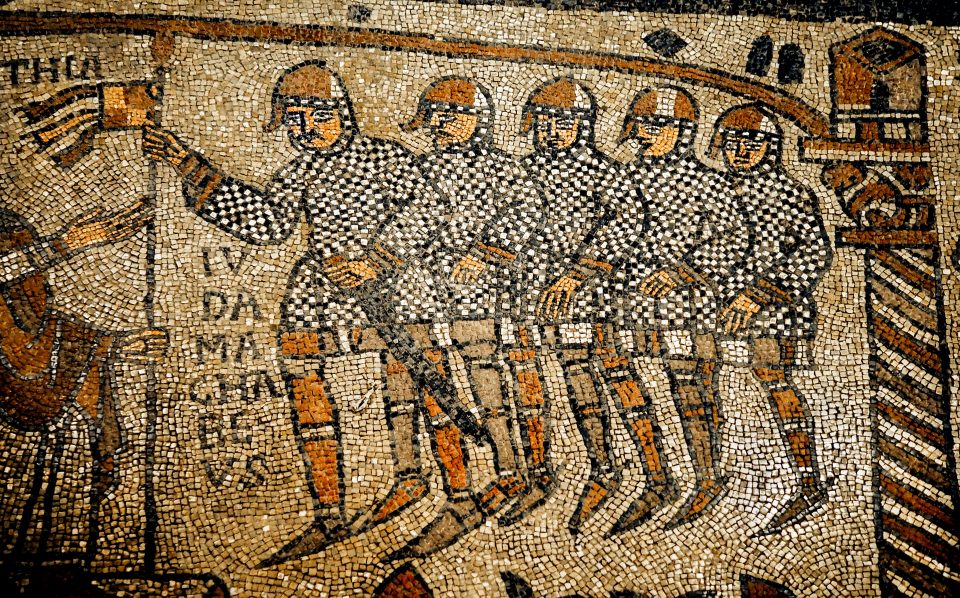I read this chapter and thought it was a bit unfair for me to go through all Pete unpacks and then not be there to join in the discussion (I am at a wedding). If you have read the chapter you will know it is focussed on the resurrection and how this event caused the gospel writers and even more so Paul a lot of hard work tying together Jewish thought from the Old Testament to what we have in the New Testament. Basically, not many people were expecting the messiah to be crucified and to rise again three days later. That changed everything and it hurt their heads trying to wrap them round what God was doing.
What I am going to do is focus on a collection of books mentioned throughout the chapter that it would be good to look at and which hopefully won’t hurt your head as much.
The Apocrypha – another ancient book
The apocrypha is a collection of books that sit between the Old Testament and the New Testament and is some times given the title of the ‘intertestimental books’. You will still find them included in some bibles today, in fact it is becoming slightly more popular for them to be left in. If you dig out the revised common lectionary (that is the three yearly cycle of readings many preachers use each Sunday) you will also find references for some Sundays to the Apocrypha as part of the weekly readings and this is used by the Methodist Church along with others. The Apocrypha contains a collection of 14 books some of which link into Old Testament stories like Esther and Daniel and others which recount events that took place in the period from the return from Exile and before Jesus was born. The books are described as being important but not holding the weight that is given to the Old and New Testament.
The books that Pete mentions in this chapter is that of the Maccabees (1 and 2) which deal with the sorties of a number of revolts that took place under various rulers and the establishment of a separate Jewish state that ended around 40 years before Jesus was born. These revolts have many references to the Messiah and to the promised salvation of the Jewish people as well as new thinking around what God was doing. These books would have been known to Paul and others and it is no surprise that we can find within its pages ideas and thinking that sits somewhere between the Old Testament and its ideas and where Paul and others get to in the New Testament. Why is this important?
Well, it shows that people were wrestling with what God was doing way beyond the end of the exile and before Jesus arrived. They were asking questions and discerning where God was in the midst of everything that was going on. That questioning and thinking lays some foundations for what we then see in the New Testament as Paul takes Jesus and all that he taught and did and ties it into this developing understanding. To put it another way – there is a disconnect in thinking between the Old and New Testament. One doesn’t end and the other pick up exactly where it left off. There is a gulf in time and wisdom between them that the Apocrypha and particularly books like the Maccabees helps fill in.
We have a gulf of time between the time in which the New Testament was brought together and where we are now. Lots more questions have been asked, experiences have been lived through and God has continued to work in peoples lives. Like the Maccabees and Paul’s and all the other writers we find in the bible and apocrypha our role is to continue to try and tie what we see God doing in the world into the life of Jesus and the continuing revelation that it brings to us and to others.
See you at the Crescent Club at 7:30pm if you are going us this week.
Questions
I said we wouldn’t talk about resurrection but… Which famous person would you bring back to life and why?
A quick one… Did you know the apocrypha existed? If you did have you read any of it?
Have you ever read a book or watched a film/tv show that is part of a series but out of order? Did it make sense?
Which people Writers/speakers/preachers/teachers etc) have helped you see what God is doing in the world differently?
What do you think is the best way to bridge the gap between the bible and what is doing in the world today?
Featured image by Carolyn Whitson on Flickr used in CC licence CC BY-NC-ND 2.0
Has been a part of BeachcomberFX since his arrival in the North East in 2014. He is well travelled (at least in the UK) having lived in Manchester, Nottingham, Derbyshire, Southport, Doncaster, Berwick and Edinburgh. Supporter of Newcastle United, will watch any sport.
